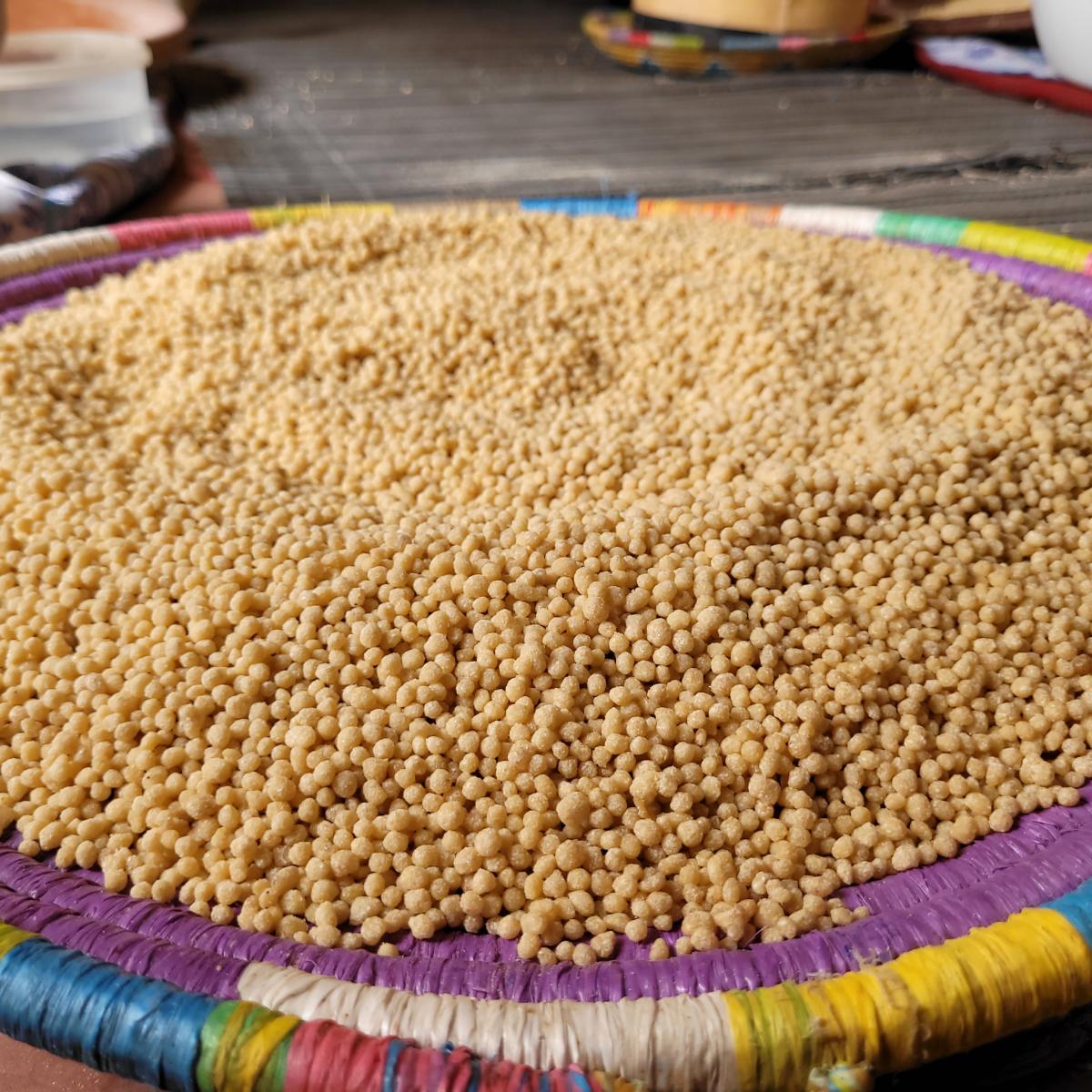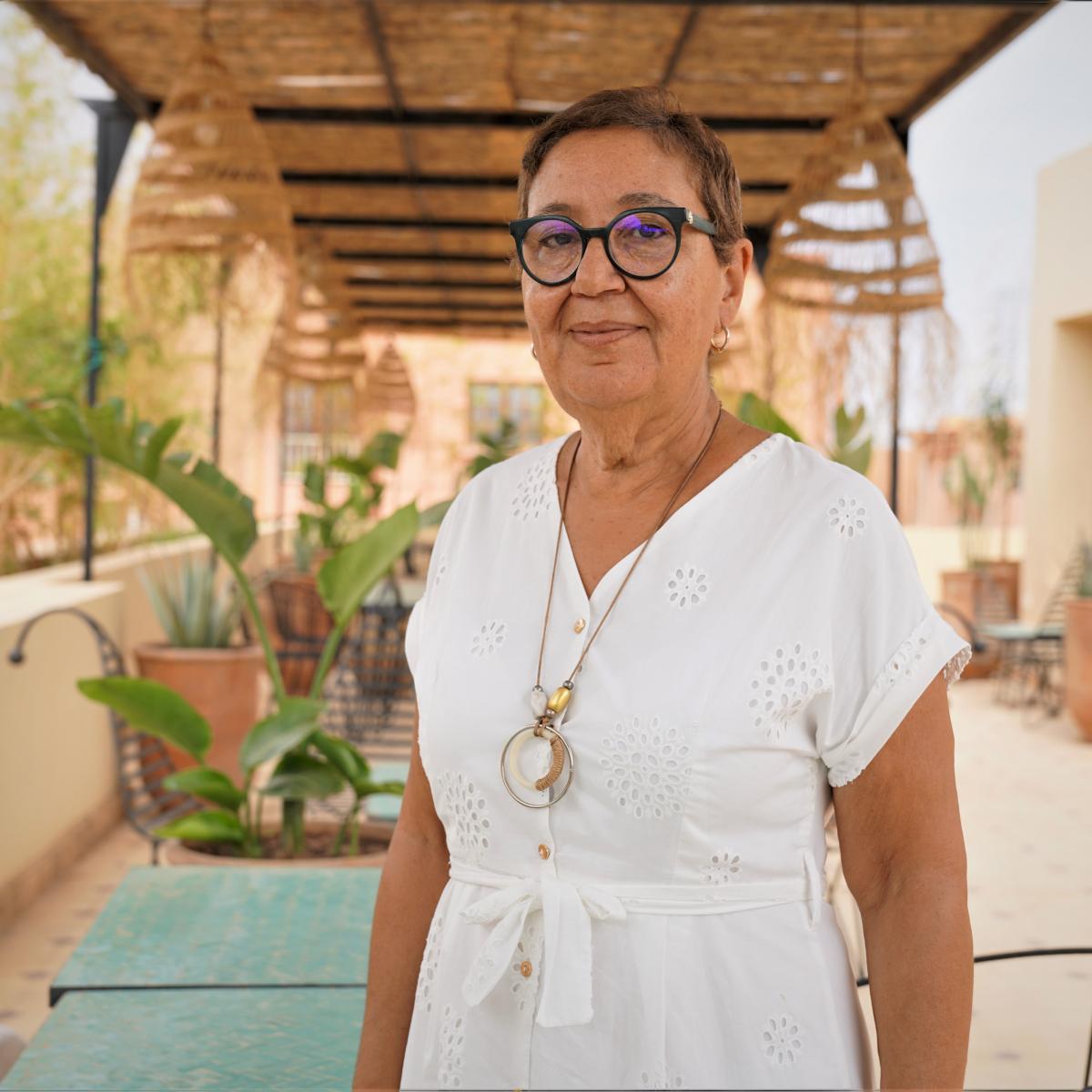The Blue Cape, “Selham Zreg:” A stitch of love and pride
When Najia crafted the blue cape, she fashioned a way into the hearts of her village’s women.
Women Move Mountains
Of all the taxi rides I’ve taken in my life, there is one that is so memorable that it is as if it happened only yesterday.
Riding in the front seat, I began to notice a surprising, pleasant scent. It only took a moment to discover its source: the woman in the back seat—another passenger—was holding an impressive bouquet of flowers close to her heart. “How beautiful!” I exclaimed.
Glowing, she proudly explained that she had been awarded the flowers after placing third in an International Women’s Day Marathon that morning. I congratulated her on this exciting accomplishment, but the young man sitting next to her—another passenger—was unimpressed. “Women’s Marathon? Nonsense!” he groaned and proceeded to contrast her to his own mother, who he deemed was more appropriately at home preparing lunch for her family.
The woman kept silent while I intervened. “Thank you, dear, but I stopped listening a long time ago,” she said calmly. Turning to the young man, she shared that she had stayed up until midnight preparing for the day and ensuring her family would be fed. “I can move mountains showing my family love for the support they give me.”
The young man was quiet for the rest of his journey. When we arrived at his destination, he paused a moment before going on his way. Looking at the woman with her flowers, he smiled genuinely and congratulated her. Perhaps, I thought, it only takes a few minutes–the duration of a short taxi ride–to convince a skeptic of women's power to move mountains.
Najia: Creating Change in Douar Ait Radi
When I met Najia in June 2023, I was immediately reminded of that woman in the taxi. The president of Iminouzreg, a women’s cooperative specialized in traditional clothing, Najia possesses the same kind of hidden strength behind her calm demeanor. This quality has proven to be a great source of power in her struggle to make her voice heard in her small community.
It is hard to believe that women in the village of Douar Ait Radi do not enjoy the same social freedoms as their peers in Marrakech, which is only 30 kilometers away. Growing up in the douar, Najia never attended school, but her brothers did. Badiaa, a fellow cooperative member who is incredibly smart, was forced to drop out when she was only 13 years old to marry a man 20 years her senior. In such an environment, Najia faced many challenges as she sought to establish the cooperative.
“You can never imagine the fortitude it has taken her to convince our husbands, fathers, and brothers to let us join the cooperative!” Badiaa told me.
When she founded Iminouzreg in 2019, Najia used old-fashioned sewing machines that she had inherited from her mother and grandmother to instruct the women from Douar Ait Radi in the art of making traditional clothing. As the cooperative grew, it became clear that in order to meet demand, it would need new, upgraded machines that would allow them to work more efficiently and produce higher quality products.
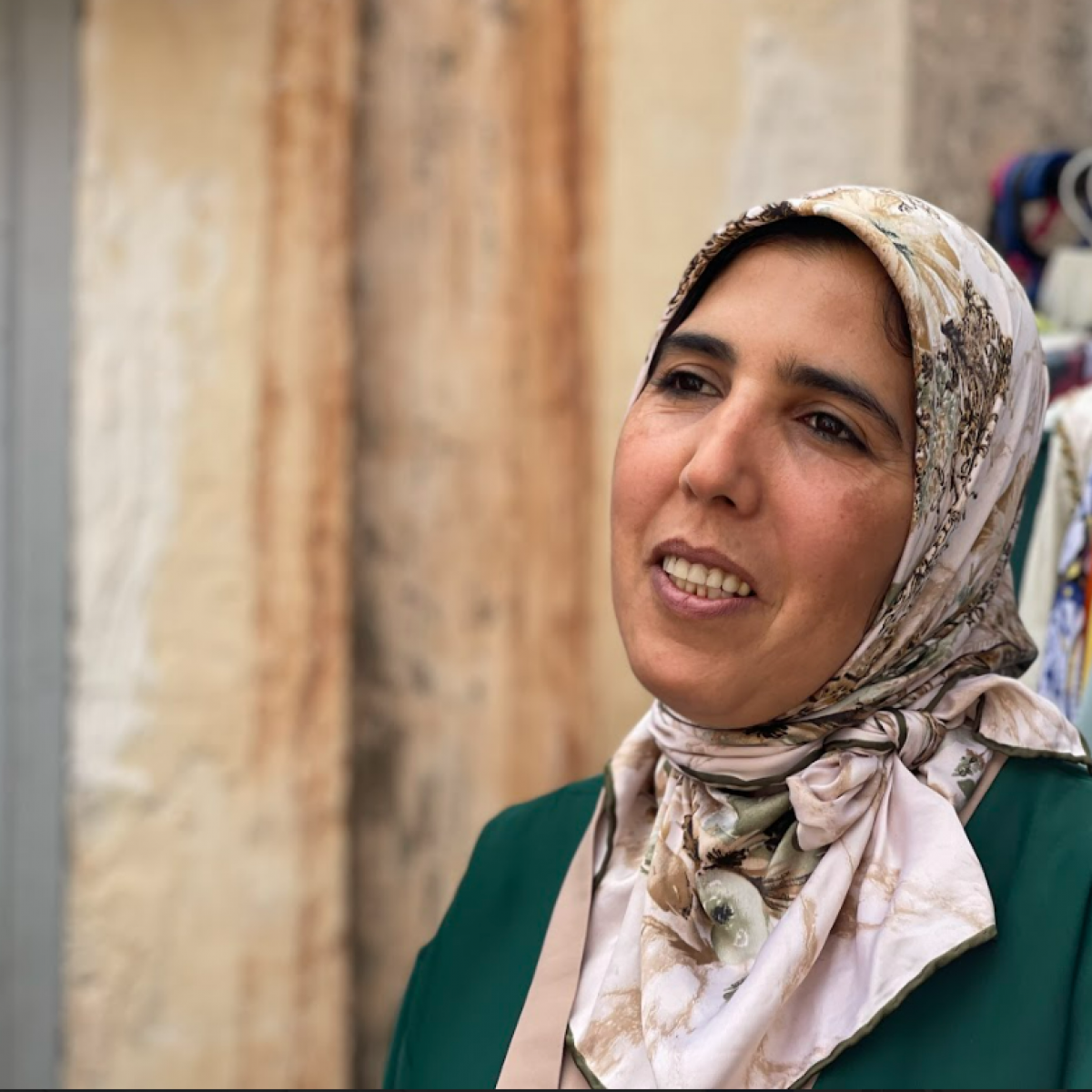
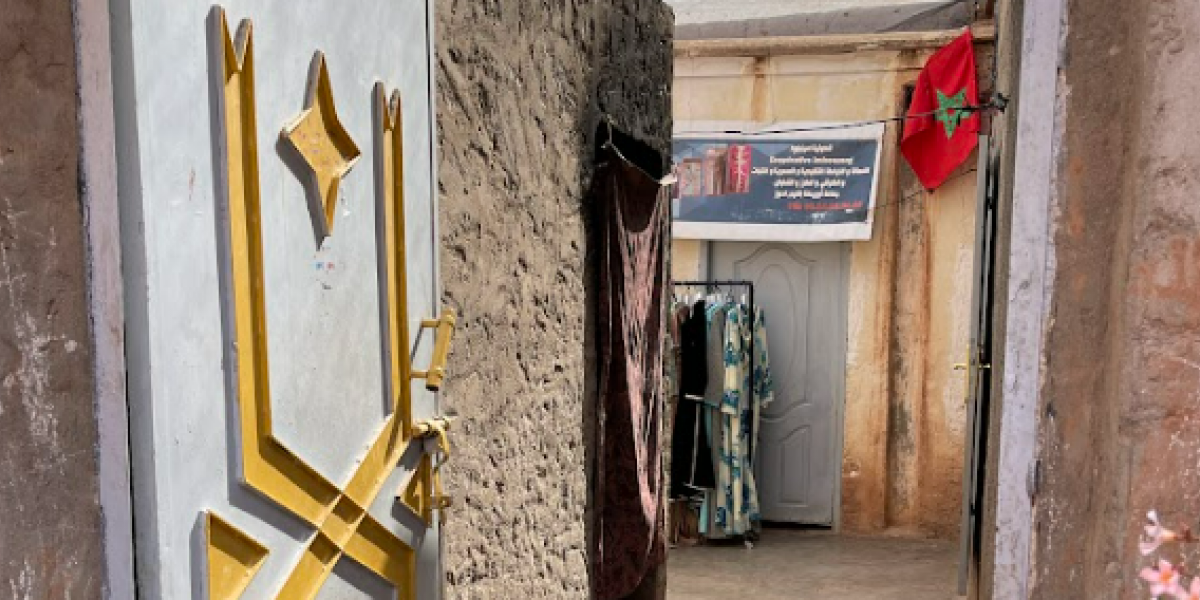
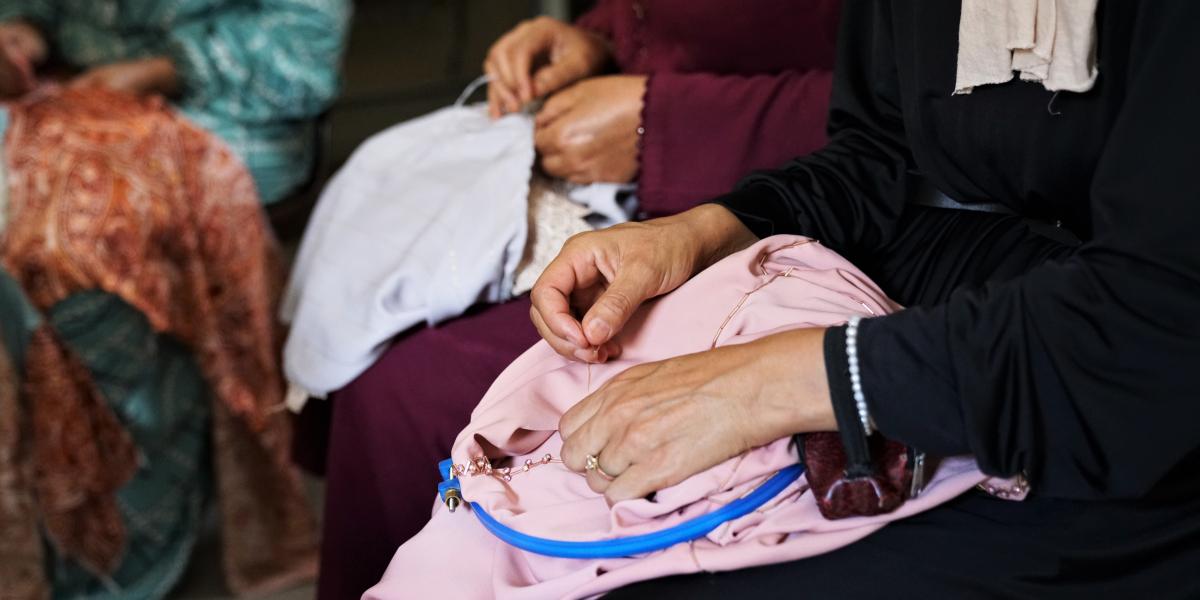
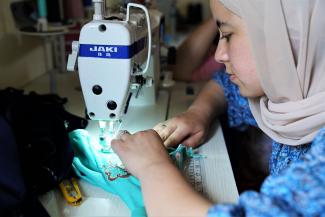
In 2022, Najia applied for funding from USAID and GiveDirectly intended to support vulnerable cooperatives to recover and grow in times of economic downturn. “I was very hopeful because I knew I responded to all the required criteria,” she explained with pride. She later received the news that Inimouzreg was one of 1,400 cooperatives selected to receive the direct cash assistance.
With the funding, Najia procured raw materials and new, automatic sewing machines. She discovered how joyful it was to pursue her passion and have the right equipment to advance the work of the cooperative.
Production increased, and the women of the cooperative began creating garments for their children and family members, friends, neighbors, and other clients. They even began to receive orders for special occasions like weddings and Eid holidays.
Sewing gave them a new-found independence. They were clothing their community by the work of their own hands and generating income while doing it. As their self-confidence grew, Najia became a role model among the women of Douar Ait Radi.
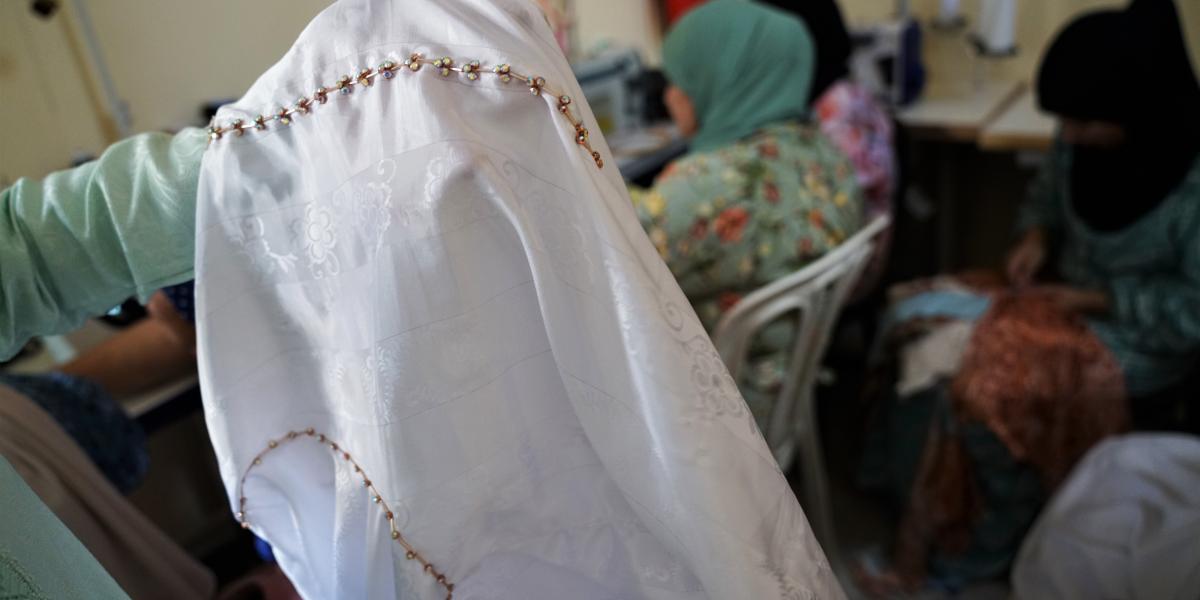
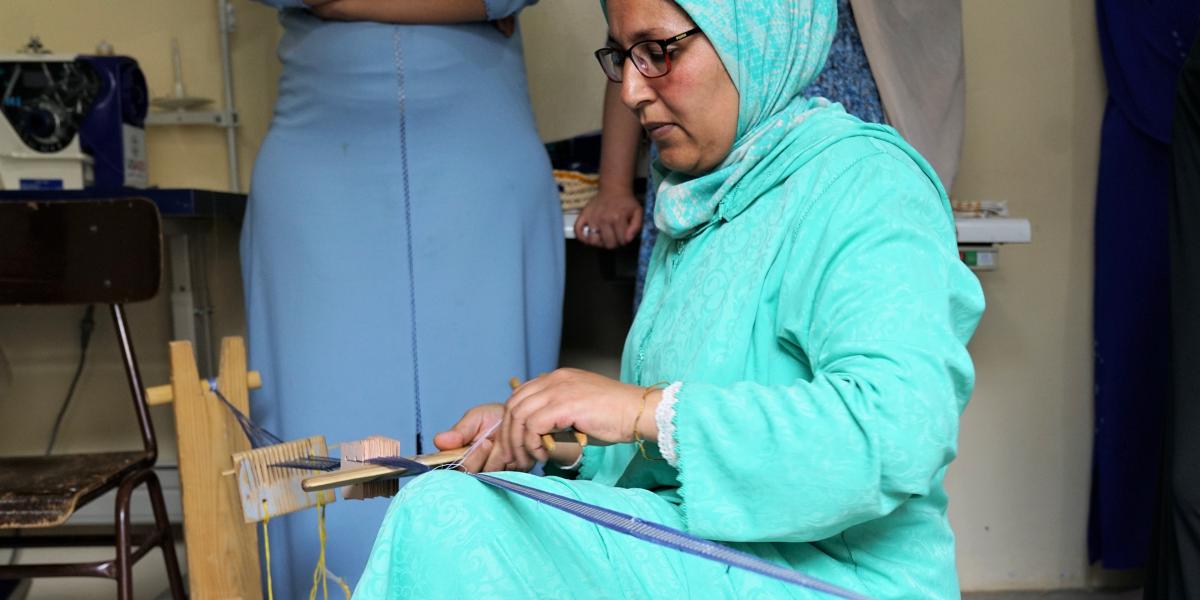
The Making of the Blue Selham
Najia’s mother often told her that hard work is always rewarded. “This grant from USAID is a great reward that I never could have dreamt of,” she said, her voice breaking. “I would never have dreamt of this opportunity either,” she added in reference to the blue cape, or selham zreg in Moroccan Arabic, she specially crafted for First Lady Dr. Jill Biden’s Marrakech visit in June 2023.
Najia was one of six women whose cooperatives received grants through the Cooperative Financing Program who had been selected to meet Dr. Biden. Pondering how to best share the work of the cooperative with the First Lady, she considered a variety of traditional Moroccan garments before eventually deciding on a selham for its ease of wear and deeply rooted meaning.
It…speaks so much to our heritage and culture. It has always been a symbol of elegance, nobility, and prestige.”
“I never planned to have her try it on,” Najia said as she recalled the moment. “But she was so nice, calling me by name and asking me questions about the cooperative! And I was so anxious to see how she would react to the selham.” She timidly asked if the First Lady could try the cape on, and the answer was yes.
Najia was “a bundle of nerves,” as she helped Dr. Biden put on the selham. “She must have sensed [this] when she graciously lowered her head to help me out.” At that moment, Najia was reassured. “When I saw how beautiful she looked in the blue cape, I began nodding to myself and grinning like crazy…No spoken language could have expressed my happiness better.”
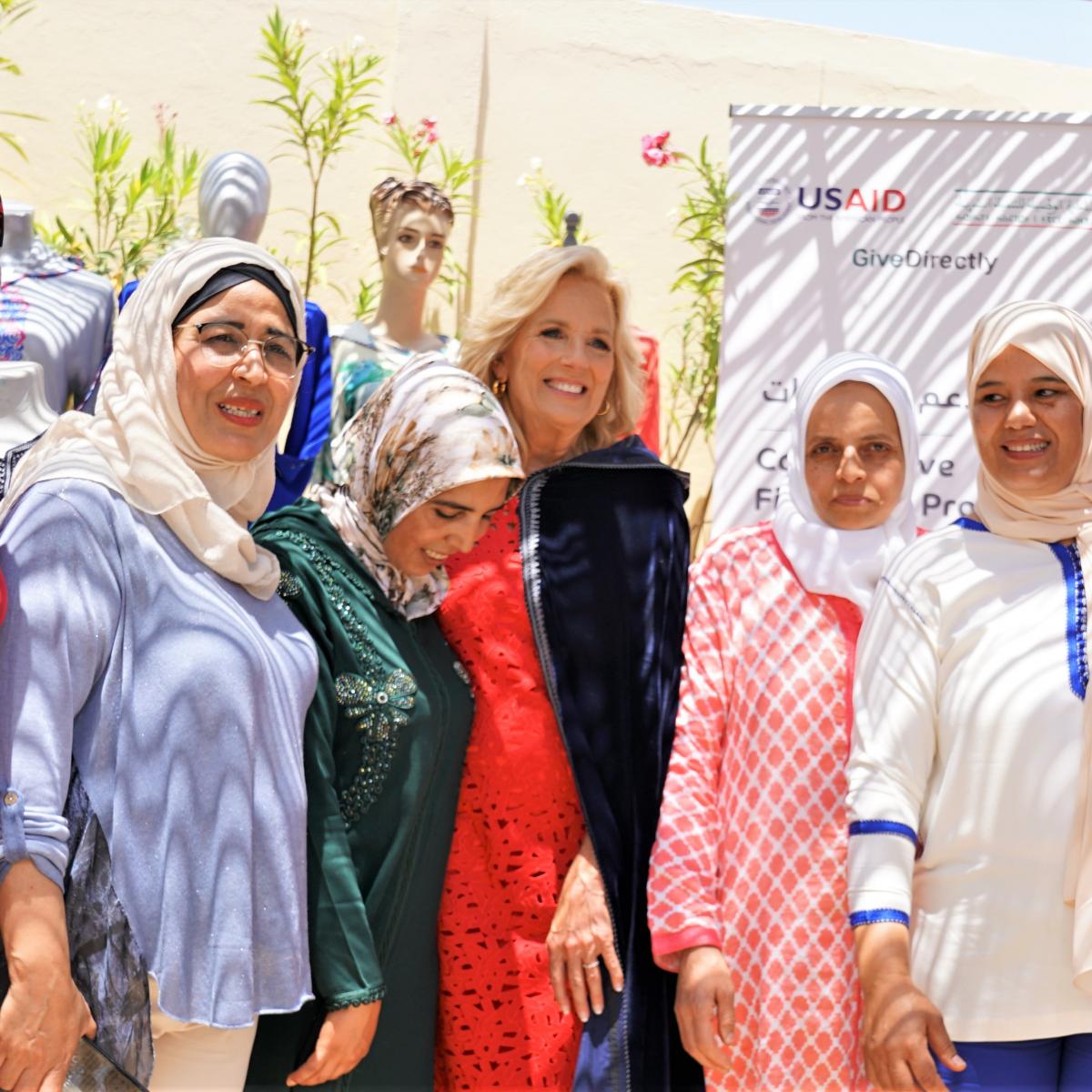
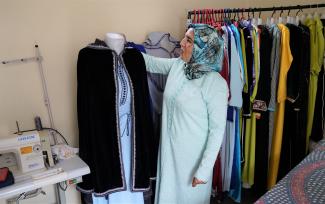
The Talk of the Town
Najia is the success story the women in the village so much wanted and waited for.
"Did you watch Najia with the FLOTUS on TV?” their husbands would ask around in the village, adding proudly, “She is the president of Iminouzreg Cooperative, where my wife works!” The women of the cooperative laughed together, discussing this keen shift in their husbands’ attitudes.
The blue selham has become the pride of Douar Ait Radi. Many women are enthusiastic to join the cooperative to learn how to make this beautiful, classic cape. And others have placed their orders for their very own hand-stitched selhams.
Standing at the door of the cooperative, Najia shared her astonishment:
A wind of change is blowing through my village. I cannot believe I am living this momentum!”
When I told Najia the story about the woman in the taxi, she said: “Thankfully, we did not listen either! Thankfully, we believed in our dreams.”
“But we would not have realized them if it were not for the USAID grant," she added.
“It came at the perfect time with the perfect message that it is not enough to know where you want to go...You have to act as if you are already there.”
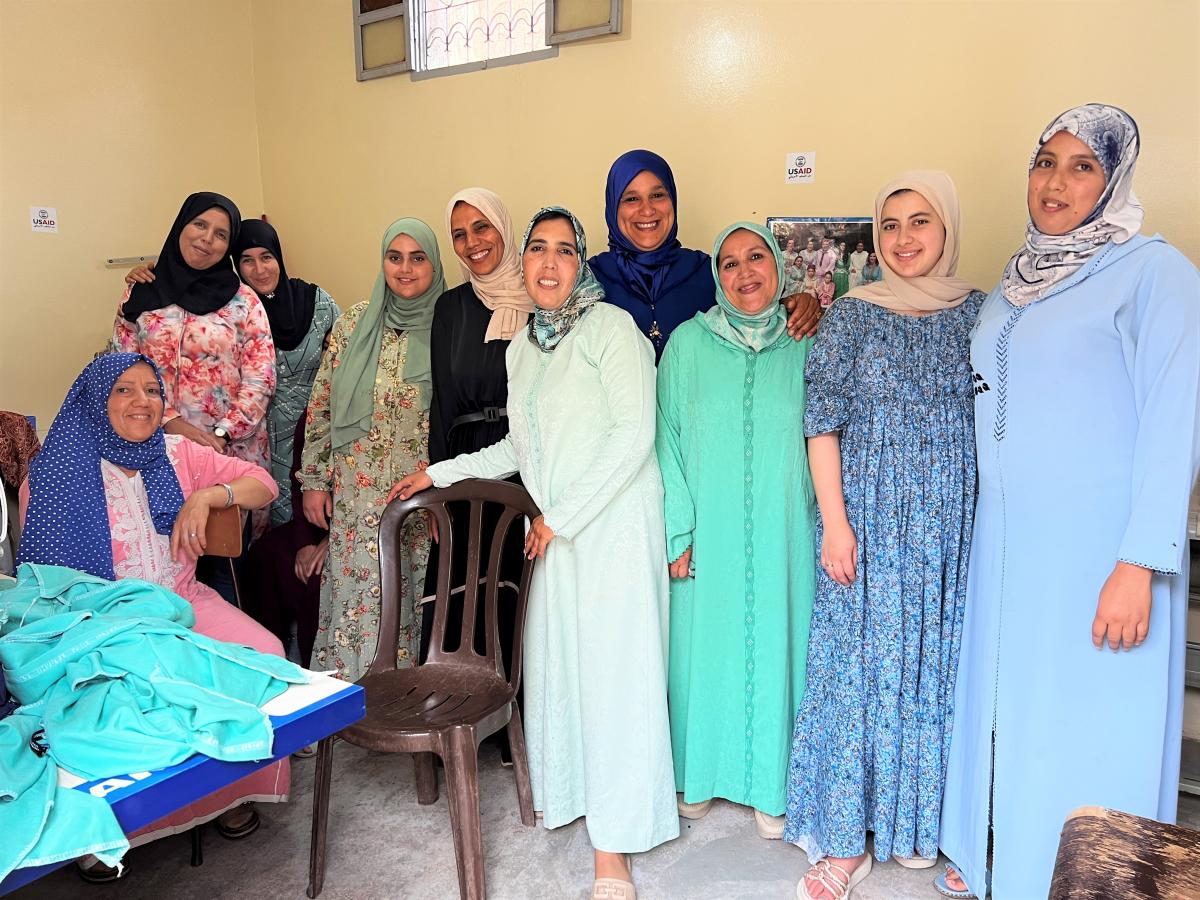
This story is published in celebration of International Women's Day.
It was authored by Zohra Zeroual, who is the Development Program
Assistant in the General Development Office at USAID’s Mission in Morocco.
Photos by Margaret Sullivan and Katie Bercegeay
Since 2021, the USAID-funded Cooperative Financing Program, implemented in partnership with GiveDirectly and in collaboration with the Moroccan National Initiative for Human Development, has supported more than 1,400 cooperatives affected by crises such as Covid-19, drought, and inflation, with direct cash grants to recover and revive productivity. These grants have impacted the livelihoods of more than 4,700 women, primarily in rural areas of Morocco, many of whom are role models for girls and women in their communities.
As of 2024, the program is now providing an additional 180 grants to cooperatives whose work and income were compromised by the Al Haouz earthquake.


